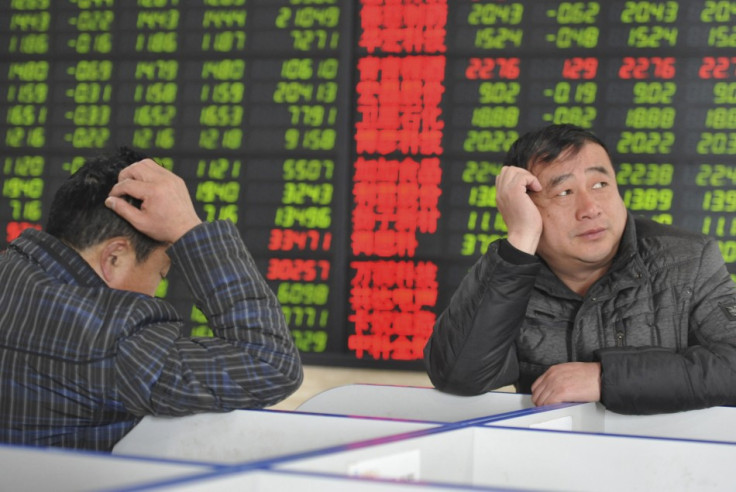Asian Markets Mixed Amid US Stimulus Taper Concerns

Asian markets witnessed mixed trade on 13 December as speculation about the timing of the expected reduction in the US Federal Reserve's bond buying stimulus weighed on investor sentiment.
Australia's S&P/ASX finished 0.71%, or 35.90 points, higher at 5,098.40.
The Japanese Nikkei finished 0.40%, or 61.29 points, higher at 15,402.11.
The Shanghai Composite finished 0.31%, or 6.72 points, lower at 2,196.07.
South Korea's Kospi finished 0.26%, or 5.02 points, lower at 1,962.91.
India's BSE Sensex was trading 0.85%, or 177.49 points, lower at 20,748.12.
Hong Kong's Hang Seng was trading 0.15%, or 34.59 points, higher at 23,252.71.
Government data in the US showed that retail sales rose a seasonally adjusted 0.7% in November, over October, their highest increase since June.
Upbeat US retail sales data fuelled speculation that the Fed could trim its $85bn-a-month bond buying programme as early as next week.
The Fed will announce its monetary policy decision on 18 December.
Standard Chartered said in a note to clients: "Developed markets will attract much attention next week. We see the Fed holding fire at its December meeting. A reduction of the quantitative easing (QE) programme is on the horizon; however, we think that the Fed can afford to wait several more months before tapering, gathering evidence that the recovery is entrenched and that inflation is picking up (November CPI data likely remained subdued)".
"We also believe that any policy change would come after Janet Yellen takes on her new role. QE tapering would then be a relatively quick process, in our view, ending in Q4-2014", the British bank added.
In Tokyo, exporters' stocks gained after the yen dropped to near five-year lows against both the euro and the US dollar.
News that Japan's cabinet approved $53bn in fresh stimulus, aimed at mitigating the blow of a sales tax-hike next April, also supported market sentiment.
In India, equities were pulled down by disappointing economic data. Industrial output shrunk 1.8% on an annual basis in October, a first in four months, suggesting that the economic recovery in Asia's third-largest economy continues to remain weak.
Meanwhile, inflation data from India showed that prices rose 11.2% in November, the highest rate of increase in two years.
Credit Agricole CIB said in a note to clients: "The INR should come under further downward pressure in coming days after very negative data out of India late last night. [Industrial output data] highlights the weakness of domestic demand and output and we expect growth to continue disappointing in quarters to come.
"[The inflation data] triggered RBI [Governor Raghuram] Rajan's comment that he was 'very uncomfortable' about the price development, a harsher term than what he used regarding his disappointment over the output data".
"After such print and statement, [Rajan] now has to hike rates next week - hurting growth outlook, or loose credibility, both of which would be INR-negative. The government is bound to pressure him not to do so given the unfavourable growth impact ahead of H114 elections, and we expect the INR to keep falling", the French bank added.
Wall Street Down
On Wall Street, indices ended lower on 12 December as market players awaited clarity on the future pace of the Fed's asset buys.
The Dow finished 104.10 points, or 0.7%, lower at 15,739.43.
The S&P 500 ended 6.72 points, or 0.4%, lower at 1,775.50.
The Nasdaq closed 5.41 points, or 0.1%, lower at 3,998.40.
Company Stock Movements
In Tokyo, Fast Retailing added 2.4% on the back of a weaker Japanese yen.
In Hong Kong, China Cinda Asset Management added 5.8% on its second trading day.
In Mumbai, ICICI Bank lost 2.7% while Bharat Heavy Electricals fell 2.4%.
In Sydney, Iluka Resources added about 3% after copper and nickel prices hit five-week highs.
Gold miner Evolution Mining dropped 4.3% and rival Kingsgate Consolidated gained 3.6%, after spot gold fell 3% in Asian trading.
© Copyright IBTimes 2025. All rights reserved.






















